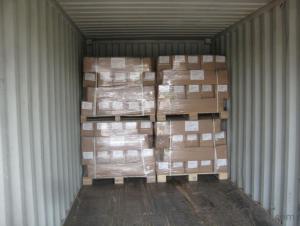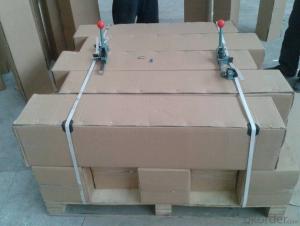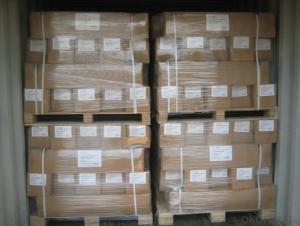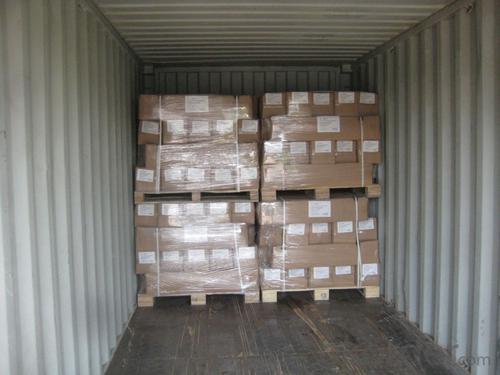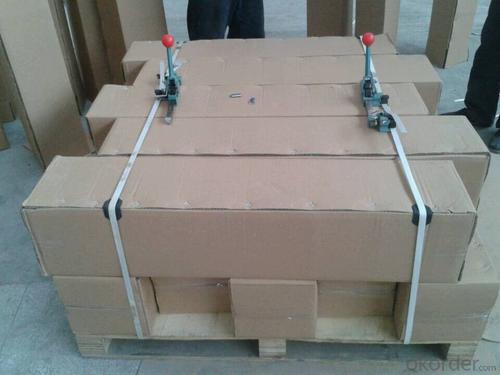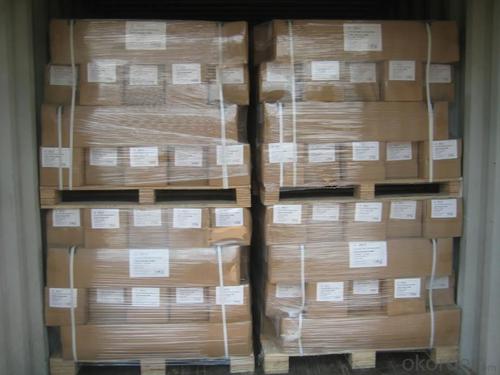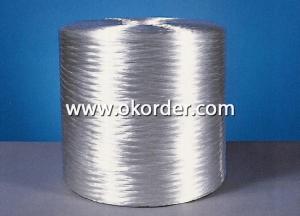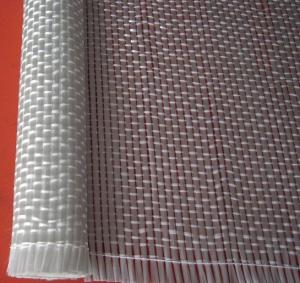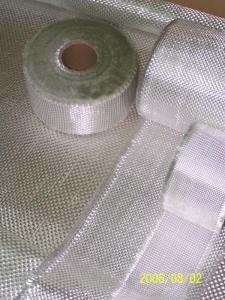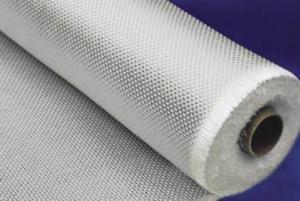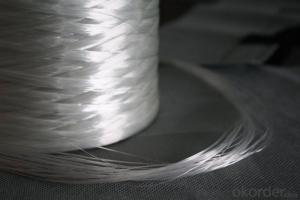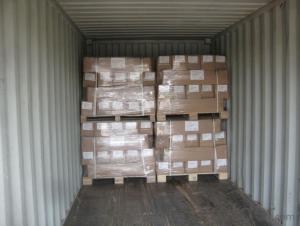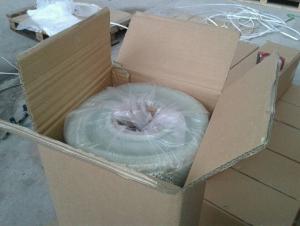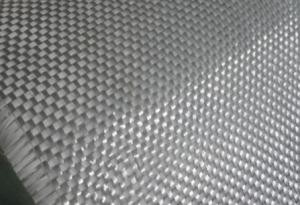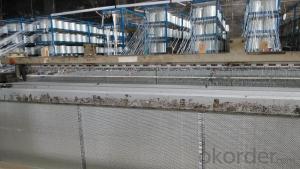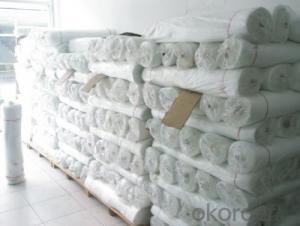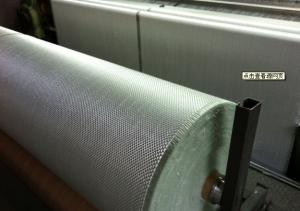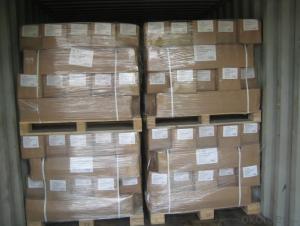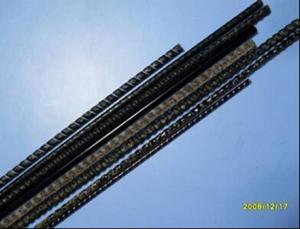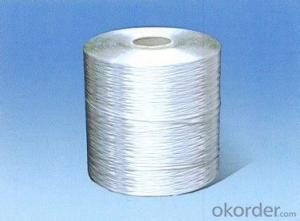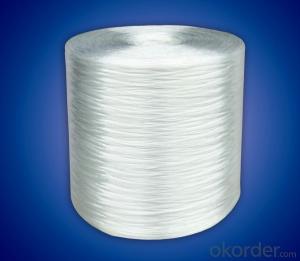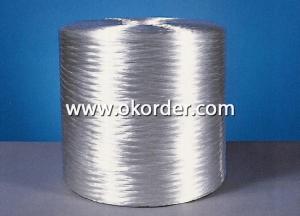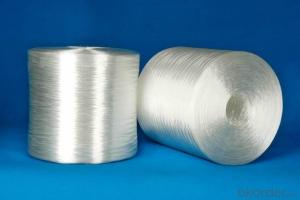E Glass Woven Roving 800gsm - Fiberglass Woven Roving 1200
- Loading Port:
- China Main Port
- Payment Terms:
- TT or LC
- Min Order Qty:
- 16000 kg
- Supply Capability:
- 160000kg Per Month kg/month
OKorder Service Pledge
OKorder Financial Service
You Might Also Like
Product Description
1. E glass roving 800gsm are bidirectional fabric made by direct rovings in plain weave pattern.
2. Compatible with unsaturated polyester,vinylresin ,epoxy resin.
3. Applicable for hand lay-up, winding and compress molding process,Suitable for manufacturing tank,boat,automobile parts and other FRP products.
1. Consistent thickness and excellent surface treatment.
2. Rapid impregnating and good compatibility with resin.
3.Uniform tension,high dimensional stability and making handing easy.
4.Good mechanical properties and high strength of parts.
Technical Data Sheet
TEST ITEM | STANDARD | STANDARD VALUE | AVERAGE VALUE | RESULT | ||
AREA WEIGHT (G/M2) | iso3374 | 800+/-5% | 810 | yes | ||
WIDTH (MM) | iso5025 | 1250±20MM | 1250 | YES | ||
FABRICS COUNT (ENDS/10CM) | WARP | iso4602 | 18±2 | 18 | yes | |
WEFT | iso4602 | 18±2 | 15 | YES | ||
TENSILE STRENGTH(N/50CM) | WARP | iso4606 | ≥4000 | 4015 | yes | |
WEFT | iso4606 | ≥4000 | 4015 | YES | ||
moisture CONTENT (%) | iso3344 | <=0.15 | 0.1 | yes | ||
LOSS ON IGNITION (%) | iso1887 | 0.4-0.8 | 0.5 | yes | ||
FAQ
Eech roll is packed by polyester bag,and then put into a cardboard box or plastic wowen bag.The weight of each roll is between 20 to 85 Kg, The rolls are to be horizontally placed and could be in bulk or on pallet.Optimum storage conditions are between the temperature of 5~35℃ and with the humidity between 35%~65%.The product should be used within 12 months from the time of delivery and remain in theiroriginal packaging until just prior to use.
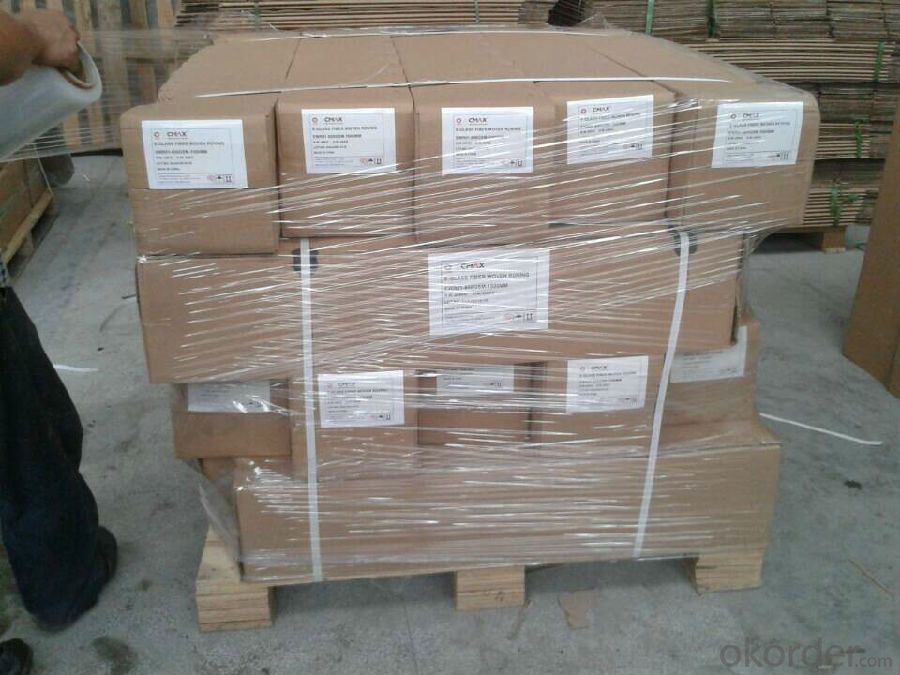
- Q: What does the basalt fiber do?
- According to its characteristics, it is a very wide range of industrial raw materials. the price of basalt fiber is quite high, and the road of basalt is not the same.
- Q: Who is going to handle the comonent joint of GRC in the exterior wall?
- Both of them should be tested. The installation process will handle it in surface flat, the rest of the process will continue.
- Q: What are the causes and methods of glass fiber surface treatment?
- Heat - chemical treatment: first, the glass fiber textile products will be emulsified by paraffin wax and then be treated with surface treatment agent (mainly used for twisting textiles).
- Q: The difference between EPS and GRC, advantages and disadvantages, construction technology, key points, the scope of application.
- Fissure is easy to leak water in the cold temperature. Flat connector does not absorb water with a little amount of coating and short production cycle (about 7-12 days). GRC decorative elements is heavy. Due to its shorter installation, it does not require very specialized workers. There is no problem under the temperature of plus or minus 50 degrees Celsius. It has excellent waterproof performance. It has pore and is not easy to chap, but it is easy to deal with and carry with good toughness. If you want to refit it, you need to do some waterproofing work. The connector can absorb water and the material used for producing is belongs to stiffness material with less crack. Finished products features with lightweight, crisp, poor uniformity. High-level job is difficult to process without leakage. Cracking phenomenon is serious and can be cut. Hot bridge is different to control with protective layer features with weathering resistance. Its weight account for 10% of the traditional non light components. Large deformation period is slow. It can be bended moderately. It features with freezing and?thawing resistance and little deformation. It is easy to install and crack so that it needs to be trimmed. It is easy to be linear deformation.
- Q: Does centrifugal glass wool is made from glass fiber
- No, the eliminated one in the upper floor does not appear in ten years.
- Q: Nominal interpretation of fiber reinforced concrete
- Mix composite materials with random and uniform distribution of short fiber in cement concrete, including steel fiber reinforced concrete. Technical specification for fiber reinforced concrete structures CECS.
- Q: What can be produced by waste flat glass.
- 1, It can used for producing asbestos cut strand. 2, It can be used for producing twistless roving. 3; It also can pull into a wire for producing glass fiber cloth. It is widely used.
- Q: What is organic glass?
- Acrylic plexiglass (acrylic) , English Acrylic transliteration, is a combination of acrylic acid and methacrylic acid chemicals. Acrylic plate often is said to be poly methyl methacrylate (PMMA) plate, which is composed of methyl methacrylate monomer (MMA) polymerization. Acrylic plexiglass (acrylic) history can trace back to the early 20s, acrylic (PMMA), according to the polymerization,can be divided to casting plate (Cast Sheet points) and extrusion plate (Extruded Sheet), pultrusion into various sifferent hollow sections and organic glass acrylic (acrylic English) is Acrylic, UV resistant plate, plate and plate (also known as extinction silk matte board).Organic glass acrylic plate according to the transmittance can be divided into pure transparent plate, so the use of glass steel doors and windows for doors and windows can reduce the trouble, and basically the same life building. FRP glass fiber reinforced materials, acrylic plate is often said that the poly methyl methacrylate (PMMA) plate, this method greatly reduces the cost of MMA, The mechanical thermal curing pultrusion molding, high flexibility, anti-corrosion, casting industry is more suitable for small batch production of sheet metal of different colors, now most of the PMMA sheet called acrylic plate. Acrylic and organic glass all come from the brand name "Oroglas". However, more crack. Some people think that the transparent plastic plate is the organic glass, and molecular weight of casting plate is high. Acrylic plexiglass (acrylic) can trace back to the early 20s, oil and other corrosive media have special anti-corrosion function, high strength, sound insulation and so on.
Send your message to us
E Glass Woven Roving 800gsm - Fiberglass Woven Roving 1200
- Loading Port:
- China Main Port
- Payment Terms:
- TT or LC
- Min Order Qty:
- 16000 kg
- Supply Capability:
- 160000kg Per Month kg/month
OKorder Service Pledge
OKorder Financial Service
Similar products
Hot products
Hot Searches
Related keywords
